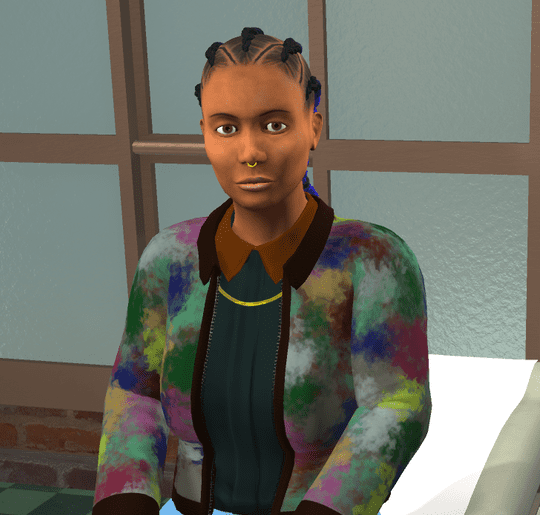Shadow Health Papers

Lupe Sosa Shadow Health Assessment
Lupe Sosa is 21 years old and goes to college. They have a lot on their plate, with a full schedule of classes. They study both philosophy and music. On top of that, they work at the library through a program where students can work while studying. Outside of school and work, Lupe also DJs at local clubs and is part of a fencing club. They have close relationships with their friends and family.
Lupe doesn’t identify as strictly male or female. Instead, they see themselves as something in between or outside of those categories. This is what it means to be gender non-binary. When people talk about Lupe, they use the pronouns “they/them.”

Struggling to meet your deadline?
Get your assignment on Lupe Sosa Shadow Health Assessment done by certified MDs and PhDs in the USA. ORDER NOW!
In a special part of the college program called Advanced Primary Care: Mental Health, students get to interact with Lupe. In this scenario, students try to figure out why Lupe is having trouble sleeping.
The team behind this college program worked with Trans Equity Consulting, an organization that knows a lot about medical training and works closely with LGBTQ+ communities, to make sure Lupe’s character was represented accurately.
During the simulation, students learn how to build a good relationship with patients. They practice talking to Lupe respectfully, making sure to use the right pronouns and calling them by the name they prefer. They also learn about small things that can bother non-binary patients, like using the wrong pronouns or not calling them by their chosen name. Even though these may seem like small details, they’re really important for making non-binary patients feel comfortable and respected in healthcare settings. This is especially crucial because non-binary people often face discrimination and hurtful comments when they seek medical help.
Lupe Sosa Shadow Health Assessment
Lupe Sosa is a 21-year-old college student who has a lot going on in their life. They’re busy with their studies, as they’re pursuing majors in both philosophy and music. On top of that, they also work at the library as part of a program that lets students work while they study. But that’s not all—Lupe also spends time DJing at local clubs and participating in fencing at a club. Despite their packed schedule, they still manage to maintain strong connections with their friends and family.
Lupe doesn’t fit into the categories of male or female when it comes to gender. Instead, they see themselves as something different, which is what being non-binary means. People refer to Lupe using the pronouns “they/them.”
In a special part of their college program called Advanced Primary Care: Mental Health, students get to interact with Lupe. In this scenario, students try to help Lupe figure out why they’re having trouble sleeping.
To make sure Lupe’s character was represented accurately, the team behind this college program worked with Trans Equity Consulting. This organization knows a lot about medical training and has strong connections to LGBTQ+ communities.
During the simulation, students learn how to build good relationships with patients. They practice talking to Lupe respectfully, making sure to use the right pronouns and calling them by the name they prefer. They also learn about small things that can bother non-binary patients, like using the wrong pronouns or not calling them by their chosen name. Even though these may seem like small details, they’re really important for making non-binary patients feel comfortable and respected in healthcare settings. This is especially crucial because non-binary people often face discrimination and hurtful comments when they seek medical help.
Lupe Sosa Shadow Health Assessment
Lupe Sosa, 21, is a college student who balances a full academic schedule as a philosophy and music double major, along with a work/study job at the library, DJ gigs in local nightclubs, club fencing, and vibrant relationships with their friends and family. Lupe is gender non-binary and uses they/them pronouns. Non-binary people do not identify with the binary gender identities of man or woman. Students can meet Lupe in the Advanced Primary Care: Mental Health* DCE. In the scenario, students help Lupe consider the possible cause of their sleep disturbances.
For Lupe’s character, Shadow Health worked with Trans Equity Consulting, an organization with experience in medical simulation and deep ties to LGBTQ+ communities.
Lupe’s simulation includes a Rapport Building activity where students practice invaluable communication skills. This includes students introducing themselves with their pronouns and establishing how Lupe would like to be referred to. Examples of microaggressions against non-binary patients that could appear in the healthcare setting, including misgendering or refusing to use a patient’s name, are addressed in the Rapport Building activity (National LGBTQ Health Education Center). While these are small steps towards building rapport with patients from vulnerable populations, they have the potential to make a big impact on building rapport with a population that experiences high levels of discrimination and microaggression in healthcare settings.

Dont wait until the last minute.
Provide your requirements and let our native nursing writers deliver your assignments ASAP.
Simulations in Shadow Health
- Graduate DCE: Advanced Primary Care: Mental Health* DCE